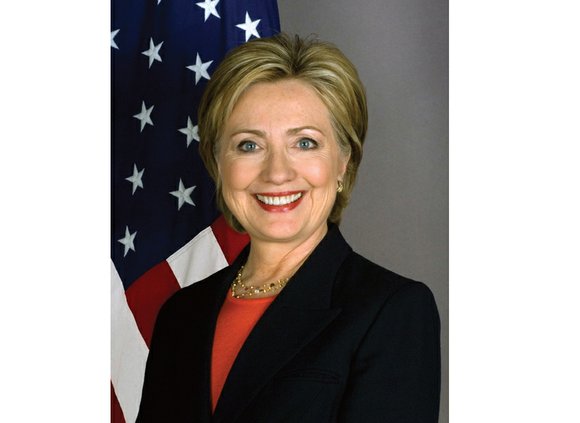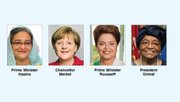If elected, Hillary Clinton would join growing list of women world leaders
8/5/2016, 6:49 a.m.
By Bonnie N. Davis
If Hillary Clinton becomes the United States’ first woman president, she will join a small but growing number of women who lead their countries.
Current women leaders include Sheik Hasina, prime minister of Bangladesh since 2009; Dilma Rousseff, president of Brazil since 2010; Angela Merkel, chancellor of Germany since 2005; Ellen Johnson Sirleaf, Liberia’s president since 2006; and Theresa May, appointed prime minister of Great Britain last month.
A Pew Research Center study last year listed 18 women world leaders, including 11 elected female heads of state. Figurehead monarchs were not included.
The report also stated that women account for about 1 in 10 of today’s leaders of United Nations member states, with half of that number reflecting the first women to hold their country’s highest office.
Some of the women listed in the Pew report are no longer in office, including Argentina’s former President Cristina Fernandez de Kirchner and Poland’s former Prime Minister Ewa Kopacz.
While Mrs. Clinton, a Democrat, may be the first woman to be nominated for president by a major political party in the United States, she is not the first woman to run for president.
Fifty years before the 19th Amendment allowed women to vote, Victoria Woodhull ran for president in 1872 under the Equal Rights Party. Her platform was universal suffrage, political reform, civil rights and welfare. Her running mate was Frederick Douglass, the first African-American ever nominated for vice president.
Shirley Chisholm of New York, the first African-American woman elected to Congress in 1968, provided a powerful voice not only for women, but for African-Americans and other people of color, when she sought the Democratic Party’s nomination for president in 1972. She struggled for acceptance as a viable candidate, coming in fourth for the nomination. She lost the nomination to George McGovern, who ultimately lost to Republican Richard Nixon in the general election.
Carol Moseley Braun of Illinois, the first African-American woman to be elected to the U.S. Senate in 1993, announced her intention to run for the Democratic Party presidential nomination in February 2003. On Jan. 15, 2004, two days after a disappointing third-place showing in the Washington, D.C., primary and four days before the Iowa caucuses, she dropped out of the race.
Lenora Fulani was the most successful female minor party candidate for president. Representing the New Alliance Party, her name was on the ballot in 51 jurisdictions in 1988 and 48 in 1992.
Former Georgia Congresswoman Cynthia McKinney was a Green Party candidate in the 2008 presidential election. On July 9, 2008, she named as her running mate journalist and community activist Rosa Clementa. She received 161,797 votes, 0.12% of the total votes cast, placing her well behind the Democratic winner, President Obama.








